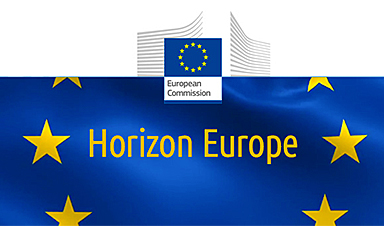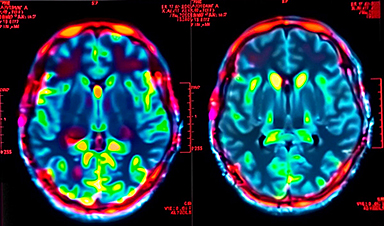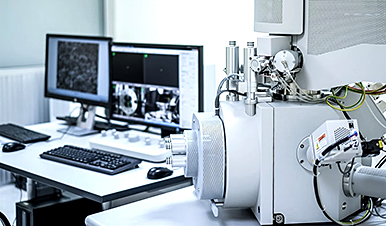EU Research Commissioner Carlos Moedas sent the European Parliament and member states a €94.1 billion research budget proposal on Thursday outlining increases in basic science spending and a blueprint for a new innovation council to spawn transformative inventions.
The Commission’s budget breakdown for its next research programme, Horizon Europe, running between 2021 and 2027, devotes the biggest share of funding, €52.7 billion, to a series of projects to tackle climate change, boost digital technologies, improve food, handle other ‘global challenges’ and boost industrial competitiveness.
The balance of the €94.1 billion will go to fund fundamental science and innovation. The total for Horizon Europe represents about 10 per cent of government research funding across the EU.
“We’re aiming higher than ever,” the Commissioner said in an interview Wednesday. Horizon Europe follows the current Horizon 2020, which has provided around €77 billion in research funding. From the start, its competitions have been extremely popular and sometimes heavily over-subscribed.
Moedas is obviously thrilled about the proposed funding increase, which comes at the expense of EU investment in agriculture and poorer regions, the two main staples of the Brussels budget.
His colleagues can’t help but feel a little envious of the budget increase. One commissioner, riding a lift with some journalists in the Berlaymont on Wednesday, said: “When he goes to countries, he goes with money, while I go to issue moral imperatives.” Another, vice-president Jyrki Katainen, said on Thursday that Moedas was “lucky” to have his hands on the portfolio at this moment.
All the numbers announced by Moedas assume no contribution from the UK, although the country has expressed a wish to access the next EU research programme after it has left the EU next March, in exchange for a membership fee, and a large say in how priorities are set. Membership has still to be negotiated, though.
He promises several novelties in Horizon Europe, including ‘moonshot’ missions and new rules to ease foreign access.
Missions, which are not specified in the programme, will get somewhere between €5 – €10 billion, the Commissioner said. “It’s very difficult to create missions today for 2021-2027. So we are just going to set down criteria,” Moedas said. “It would be a little bit arrogant to define the missions now.”
Nevertheless, he gave two examples of possible missions that he feels the European public would get behind and support: finding a cure for Alzheimer’s disease, and creating zero-carbon boats.
The desire to create missions is also borne out of a niggling feeling the Commissioner has that there is not enough awareness or credit today for EU-funded research. “When IMI [the EU-funded Innovative Medicines Initiative] helped create a new Ebola vaccine in 2015, nobody knew it was us,” Moedas said.
Brussels also wants to tighten and, in its words, streamline the management of public-private research partnerships. “We have too many names, too many acronyms,” Moedas said.
Some ingenuity with numbers means the Commission is claiming a total research budget of €100 billion.
Image Credit: EC Horizon 2020
News This Week
Does COVID increase the risk of Alzheimer’s disease?
Scientists discover that even mild COVID-19 can alter brain proteins linked to Alzheimer’s disease, potentially increasing dementia risk—raising urgent public health concerns. A recent study published in the journal Nature Medicine investigated whether both mild and [...]
New MRI Study Reveals How Cannabis Alters Brain Activity and Weakens Memory
A massive new study sheds light on how cannabis affects the brain, particularly during cognitive tasks. Researchers analyzed over 1,000 young adults and found that both heavy lifetime use and recent cannabis consumption significantly reduced brain [...]
How to Assess Nanotoxicity: Key Methods and Protocols
With their high surface area and enhanced physicochemical properties, nanomaterials play a critical role in drug delivery, consumer products, and environmental technologies. However, their nanoscale dimensions enable interactions with cellular components in complex and [...]
Nanotech drug delivery shows lasting benefits, reducing need for repeat surgeries
A nanotechnology-based drug delivery system developed at UVA Health to save patients from repeated surgeries has proved to have unexpectedly long-lasting benefits in lab tests – a promising sign for its potential to help human patients. [...]
Scientists Just Found DNA’s Building Blocks in Asteroid Bennu – Could This Explain Life’s Origins?
Japanese scientists detected all five nucleobases — building blocks of DNA and RNA — in samples returned from asteroid Bennu by NASA’s OSIRIS-REx mission. NASA’s OSIRIS-REx mission brought back 121.6 grams of asteroid Bennu, unveiling nitrogen-rich organic matter, including DNA’s essential [...]
AI-Designed Proteins – Unlike Any Found in Nature – Revolutionize Snakebite Treatment
Scientists have pioneered a groundbreaking method to combat snake venom using newly designed proteins, offering hope for more effective, accessible, and affordable antivenom solutions. By utilizing advanced computational techniques and deep learning, this innovative [...]
New nanosystem offers hope for improved diagnosis and treatment of tongue cancer
A pioneering study has unveiled the Au-HN-1 nanosystem, a cutting-edge approach that promises to transform the diagnosis and treatment of tongue squamous cell carcinoma (TSCC). By harnessing gold nanoparticles coupled with the HN-1 peptide, [...]
Global Trust in Science Is Stronger Than Expected – What’s Next?
A landmark global survey conducted across 68 countries has found that public trust in scientists remains robust, with significant support for their active involvement in societal and political matters. The study highlights the public’s [...]















Leave A Comment